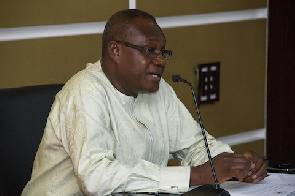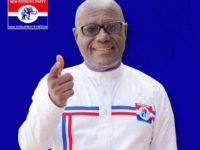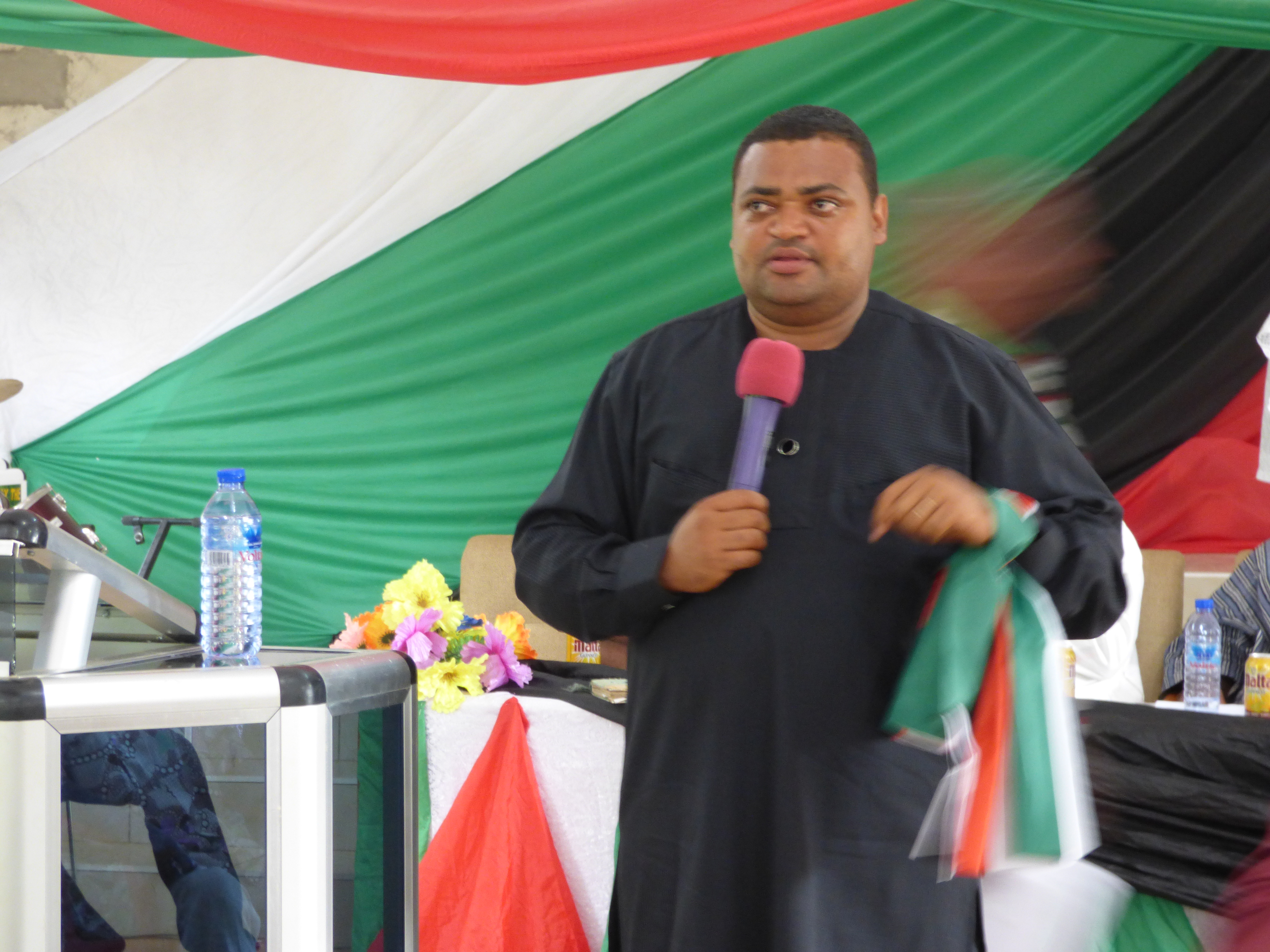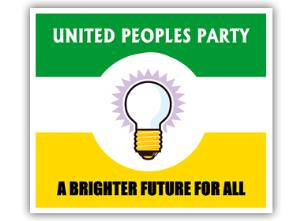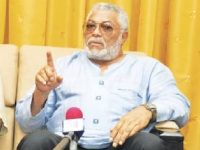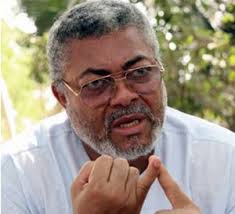 The PNDC decentralized political power and the decision-making process. The regime promulgated its Blue Book on the Creation of District Authority and Modalities for District Level Elections on July 1, 1987. Based largely on the reports of the Sowu Committee (1982) and the Public Administration Review and Decentralization Implementation Committee (PARDIC) established in 1983, the programme of decentralization was to ensure development at the grass roots and popular participation in decision-making. It was also to reduce rural-urban drift of the youth, rural unemployment and resource generation for development. As a follow-up, the PNDC established District, Municipal and Metropolitan Assemblies. The number of local government units thus increased from 65 to 110.
The PNDC decentralized political power and the decision-making process. The regime promulgated its Blue Book on the Creation of District Authority and Modalities for District Level Elections on July 1, 1987. Based largely on the reports of the Sowu Committee (1982) and the Public Administration Review and Decentralization Implementation Committee (PARDIC) established in 1983, the programme of decentralization was to ensure development at the grass roots and popular participation in decision-making. It was also to reduce rural-urban drift of the youth, rural unemployment and resource generation for development. As a follow-up, the PNDC established District, Municipal and Metropolitan Assemblies. The number of local government units thus increased from 65 to 110.
The Assemblies were composed of members, two-thirds of which were elected by universal adult suffrage on a non-partisan basis, while the PNDC nominated one-third of the membership, acting in consultation with traditional authorities and organised productive economic groupings in the district. Subject to the Constitution, the Assemblies were not only the basic political authority, but also the established deliberative, legislative and consultative body which had to ensure the development of the area under their control. They were to maintain security and public safety in the district or municipality in cooperation with the right national and local security agencies. They were also to ensure ready access to the courts for the promotion of justice.
Regional Coordinating Councils were established to serve as a link between the DAs/MAs and the central government. Composed of between 17 and 45 individuals of varying background, the RCC also had the duty of allocating to the districts, funds approved by government and reviewing and coordinating public services in the region.
With the assistance of the World Bank, the PNDC, under the Urban I and II project strengthened the management and revenue mobilization capacities of DAs (eg. Sekondi/Takoradi, Kumasi, Tema and Tamale) and also improved lorry parks, rehabilitated markets, schools and in certain instances modern places of convenience were provided.
Defence Committees – People’s Defence Committee (PDC), later renamed the Committee for Defence Organisation (CDO) and the Committee for the Defence of the Revolution (CDR) and Workers’ Defence Committee (WDC) were set up as organs of peoples’ power and partners in the decision-making process. For instance, the WDCs at the work places acted as equal partners in the running of their organisations, institutions and factories. The PDCs which operated down to the village level sought to ensure fair deals within their communities. As Hansen puts it: “The Defence Committees . . . became the main channel for the articulation of demands by that social group which has been persistently left out of the political decision-making process by the class coalition which has ruled the country since independence.”
The PNDC’s response to the economic crisis was the launching in April 1983 of the Economic Recovery Programme (ERP). Officially divided into two phases – ERP 1 (1983-86) and ERP II (1987-89) designated the Structural Adjustment and Development Phase, its objectives included arresting the decline in production in all sectors of the economy, particularly agriculture, including cocoa, and control factors that have been causing hyper-inflation. It was also to sustain economic growth at between 5 and 5.5% a year over the medium term, increase domestic savings from about 7% at the end of ERP I to about 15% by the end of the decade and increase the level of public investment from about 10% of national income to about 15% by the end of the decade.
Capital inflow for ERP was tremendous. In 1983 over US$571 million was made available by different Western-controlled foreign capital sources. The IMF provided US$ 255 million standby credits and US$ 26.75 million under the Fund’s Compensating Financing Facility (CFF). The World Bank loaned to Ghana US$90 million for the revival of the foreign-currency-generating export of cocoa, gold and timber.
The IMF’s International Development Association provided a short-term bridging soft loan of US$40miIlion for the importation of materials and spare parts needed for the rehabilitation of the agriculture and transportation sectors of the economy. In 1984 grants amounted to US$148 million and loans to US$172 million, from multilateral institutions as well as from bilateral sources were disbursed. Thus, in the first two years of the ERP, the PNDC gained access to US$891 million.
Under the ERP real GDP has grown steadily at around 5% per annum. Domestic savings as a proportion of Gross Domestic Product – GDP increased from 4% in 1983 to about 7% in 1988. The rate of inflation as measured by the Consumer Price Index (CIP) also witnessed a systematic downward trend as it declined from 122% in 1983 to 40% in 1984, then to 10% in 1985. It increased to 25% in 1986, to 40% in 1987, was about 35% in 1988 and 25% in 1989. Comparing the situation at the beginning of the ERP, there is little doubt that success was achieved in controlling the fires of inflation.
As a result of incentives to exporters generated by foreign exchange depreciations (for instance the cedi depreciated from C2.75 to U$ 1.00 in April 1983, to C90.00 to US $ 1.00 in January 1986, and finally C2.89 to US$1.00 in October 1989) foreign exchange earnings from the export of goods and services increased from US$ 460 million in 1983 to US$ 912 million 1989. Again, Ghana experienced a modest success in the area of non-traditional exports which increased from US$ 5.5 million in 1983 to US$42.4 million in 1988, including US$ 15.2 million from processed arid semi-processed products.
To alleviate the plight of the people, the PNDC introduced the Structural Adjustment Programme SAP I and II and the Programme of Action to Mitigate the Social Cost of Adjustment (PAMSCAD). Under this programme, to which donors had pledged US$85 million, the government was to provide community self-help projects and other local services in education, health, potable water and electricity.
The government through the NIC, CVC and the Public Tribunals attempted to uproot corruption and other evils by exposing corrupt deals and practices and punishing the culprits through heavy fines, imprisonment, confiscation of assets and dismissals. For instance the National Public Tribunal sitting in Accra on 25 July 1986 jailed 3 lawyers, Dan Nii Oku, O.K. Okrah and Joseph Musah for defrauding the State insurance Corporation of over £186,000 in respect of non-existent insurance claimants. Nii Oku had 5 years, Okrah 2 years and a fine of £50,000.00, while Musah was found guilty but insane and ordered to be detained as a criminal lunatic. Owusu Boateng, managing director of Face to Face Clearing Agency, a customs house clearing agent at Tema was ordered by the Tema District Investigations Committee to pay C8,444,807.98 to the state within one week as penalty for short payments and evasion of customs duties on 380 drums of ethanol alcohol which his company cleared. And in August 1983, 69 officials of the Ministry of Foreign Affairs (among whom were 16 Principal and Principal Assistant Secretaries) were dismissed for offenses which ranged from financial irregularities, misuse of diplomatic bag, gross inefficiency, and indiscipline to desertion of posts.
Tourism was one area that the PNDC administration gave serious attention to. Under PNDCL 116, tourism was declared as one of the four priority sectors of the economy having been identified in 1985 as a key sector in the country’s development under the ERP. With a steady improvement in tourist sites and programmes such as the Pan-African Theatre and Arts Festival (PANAFEST) – the first of which was held in 1992, tourist arrivals have been on the ascendancy. For instance, in 1985 there were 85,332 arrivals with receipts of US $20 million, 1987 – 103,440 arrivals and US $26.49 million as receipt, 1989 – 125,162 arrivals and 1992 – 213, 316 arrivals with US$72.09 million and US $166.90 million respectively as receipts. By 1992, the sector had emerged as the fourth largest foreign exchange earner after cocoa, gold and timber. And to build upon this laudable achievement, the PNDC established the Ministry of Tourism to develop and formulate policies for the development of five areas of the sector, namely: heritage, culture, beaches, convention and ecology/ecotourism.
The government launched an Education Reform Programme which sought to make the educational system relevant to Ghana’s development needs. The new system, which was an inheritance from the Busia and Acheampong governments; Continuation School System, set up a 6-year primary, 3-year junior secondary and 3-year senior secondary system. This was to be followed by a 4-year tertiary education for those who qualified and secured places for advanced or professional studies.
The PNDC rule saw the use of law as an instrument to effect social change. To a considerable extent, women have been the beneficiaries of some of this legislation. The Head of Family (Accountability) Law, the Intestate Succession Law 1985 (PNDCL 111) and the Customary Marriage and Divorce (Registration) Law 1985 (PNDCL 112) were a further step to regulate family relationships and obligations and to protect the weak against injustice and wanton dissipation of family property. The laws aimed at protecting women (especially widows) and children in particular.
Under Ghanaian customary law the courts had been unable to hold family heads accountable to ordinary members of the family who might be cheated of their due proportion of family property or proceeds. The Head of Family Accountability Law made accountability by heads of family mandatory and enforceable by any interested or aggrieved family member. The Intestate Succession Law basically dealt with the self-acquired property of the deceased. It determined by law how a deceased’s property could be distributed among the surviving spouse and child(ren) and the family. The Customary Marriage and Divorce (Registration) Law required the registration of all customary marriages in Ghana. The registration gave the wife, husband or the child(ren) certain legal rights in case of divorce or death.
Some other major achievements of the Rawlings’ regimes:
• Achieved political and economic stability in a region rife with conflicts (for example Liberia, Côte d’Ivoire, Togo, Guinea Bissau and Sierra Leone).
• Created 110 districts through non-partisan district level elections. Education, infrastructure developments and healthcare all devolved to the district level. Annual government subvention by law goes to the district — unthinkable in many other African countries.
• Absorbed hundreds of thousands of Ghanaians living in Nigeria who were expelled. Housed them at El -Wak stadium in 1983 and then moved them to their family homes. Most other economies, including even advanced ones such as Germany saw their economies suffer when they reunified with integrated citizens (for example German reunification)
• Built first ever memorials to Kwame Nkrumah and W.E.B. DuBois.
• Followed an independent foreign policy
• Returned Ghana to democratic rule in 1992, after a public referendum by a wide majority approved a new constitution.
• Passed the value added tax (VAT of 10%) to secure government revenue base, which today funds most government public expenditures.
• Passed the Ghana Educational Trust Fund (GET Fund) that is today educating millions of Ghanaians.
• First Ghanaian President in 20 years to be received on a state visit of the US.
• Expanded electricity to Northern parts of Ghana – hitherto ignored by ruling elites since 1957.
• Both Bill Clinton and Queen Elizabeth II visited Ghana during Rawlings’ tenure to highlight the successes of the country.
• The NDC’s agricultural policy and programme 1994-2000 resulted in the recognition of Ghana’s Food Production Index of 148% for 1995-1997 as “the third world highest achievement after Jordan (157%) and China (156%) in the World Bank’s “1999-2000 Development Report.”
• Contributed immensely towards dispute resolution and peace keeping in several of the unstable countries in the West African sub-region and beyond.
• Started the Expansion Project and the Renovation of the 37 Military Hospital.
• In the urban road sector, reconstructed the entire Kumasi city roads, Sekondi-Takoradi city roads and Accra city roads. In Accra, these included the six-lane dual carriage road leading to the four-lane dual carriage road from the Tetteh Quarshie Interchange to the Independence Avenue.
• Constructed the Kumasi-Sunyani asphalt road; the Kintampo-Tamale-Bolgatanga-Paga asphalt road; and the double surfacing bitumen Bibiani-Awaso-Sefwi Wiawso road.
• Established the University for Development Studies, and used his Hunger Award Prize Money to buy books for the University’s Library.
• He upgraded the Winneba Advanced Teacher Training College into a full-fledged public University of Education, Winneba, thus adding two new public Universities to the three that had existed since independence.
• Introduced the policy of allowing the establishment of private tertiary institutions, including Universities, to supplement the public sector Universities. Implemented the policy of one region, one Polytechnic.
• Made sure that every district had at least one senior secondary schools.
• Constructed the modern regional hospitals at Cape Coast, Ho and Sunyani. Numerous modern district hospitals were constructed in the district capitals all over the country.
• Potable water was provided for so many communities that at the time he was leaving office, guinea worm infestation had virtually been eradicated from Ghana.
• The housing sector, the sprawling housing estates at Adenta, Sakumono, Lashibi, and on the Spintex Road all in Accra and the SSNIT Estates all over the country were constructed during his era.
• There was the smooth, historic transfer of power from the NDC to the NPP.
• The creation of District Assemblies’ Common Fund, the GetFund, the Road Fund, the EDIF and the Energy Fund
• Ghana’s huge reputation in international peacekeeping, coupled with the ability of H.E. JJ Rawlings to get the illustrious son of Ghana, Kofi Annan, elected as the Secretary-General of the United Nations.
